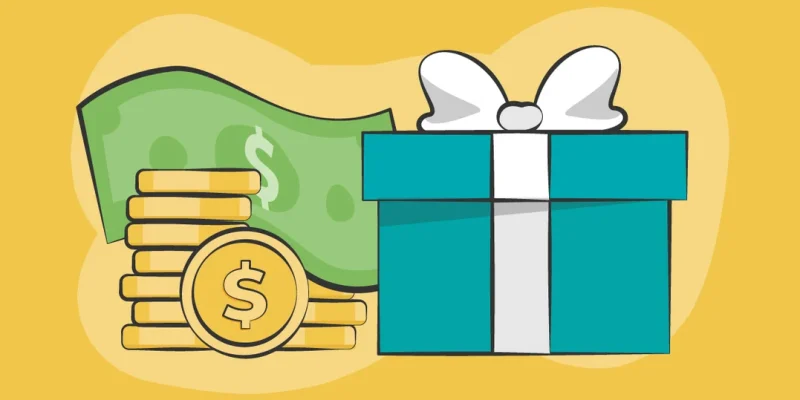Cash Incentive: Definition, Benefits, and How It Drives Motivation

In today’s competitive business landscape, cash incentives have become a popular tool for motivating employees, driving customer loyalty, and boosting sales. Offering financial rewards is a proven strategy to encourage specific behaviors, from achieving performance goals to fostering brand engagement.
This article explores the definition of cash incentives, their types, benefits, and tips for implementing them effectively in your organization. Whether you’re looking to reward employees, attract customers, or improve overall productivity, cash incentives can be a game-changer.
What Is a Cash Incentive?
A cash incentive is a monetary reward given to employees, customers, or other stakeholders to encourage specific actions or behaviors. This could include meeting sales targets, staying loyal to a brand, or achieving performance milestones.
Key Features:
- Delivered as direct cash or financial equivalents like bonuses, gift cards, or checks.
- Tailored to motivate individuals or teams toward specific goals.
- Used in various settings, including workplaces, loyalty programs, and promotional campaigns.
Types of Cash Incentives
Employee Cash Incentives
Designed to motivate employees, these include:
- Bonuses: Rewards for achieving performance milestones or company goals.
- Commission: Percentage-based payments for sales achievements.
- Spot Rewards: Immediate cash rewards for exceptional work or innovative ideas.
Customer Cash Incentives
Used to attract and retain customers, examples include:
- Cashback Offers: Returning a portion of the purchase amount to customers.
- Referral Rewards: Incentives for bringing in new customers through referrals.
- Loyalty Points: Redeemable points that translate into cash discounts.
Team-Based Incentives
Monetary rewards for groups or departments that achieve shared objectives, fostering collaboration and teamwork.
Promotional Incentives
Cash giveaways or discounts offered during marketing campaigns to drive sales and increase brand visibility.
Benefits of Cash Incentives
Boosts Motivation and Performance
Cash is a tangible, universally valued reward that drives employees and customers to achieve their goals.
Increases Loyalty
Offering financial incentives fosters a sense of appreciation, encouraging employees and customers to stay loyal to your company.
Enhances Productivity
Clear financial rewards tied to specific objectives inspire individuals to work more efficiently and achieve targets.
Drives Sales and Engagement
For customers, cashback offers or referral bonuses create a win-win scenario that promotes repeat purchases and brand advocacy.
Customizable for Any Budget
Cash incentives can be tailored to fit small or large budgets, making them accessible for startups and large corporations alike.
How to Implement Cash Incentives Effectively
Define Clear Objectives
Identify the behaviors or results you want to encourage, such as sales growth, customer referrals, or improved productivity.
Set Realistic Goals
Ensure targets are attainable to avoid frustration or disengagement among participants.
Communicate Transparently
Clearly explain the incentive program, including eligibility criteria, rewards, and timelines, to all participants.
Monitor and Measure Progress
Track the performance of the incentive program using metrics like sales data, customer feedback, or employee surveys.
Celebrate Achievements
Publicly recognize recipients of cash incentives to boost morale and encourage others to strive for rewards.
Evaluate and Adjust
Analyze the program’s success and make adjustments as needed to maximize its impact over time.
Examples of Successful Cash Incentive Programs
Employee Recognition Programs
A software company offers a $500 bonus to employees who exceed their quarterly performance targets.
Customer Cashback Campaigns
A retail store runs a cashback promotion, offering 10% of the purchase amount back to customers during the holiday season.
Referral Rewards
A subscription service rewards customers with $20 cash credits for every new customer they refer.
Team-Based Bonuses
A manufacturing plant gives a $1,000 cash reward to teams that meet monthly production goals while maintaining quality standards.
Pros and Cons of Cash Incentives
| Pros | Cons |
| Universally appealing and valued | May become expected over time |
| Flexible and easy to distribute | Can overshadow non-monetary rewards |
| Boosts morale and engagement | Limited impact on intrinsic motivation |
| Encourages immediate results | Risk of short-term focus |
Cash Incentives vs. Non-Cash Rewards
| Aspect | Cash Incentives | Non-Cash Rewards |
| Value Perception | Tangible, universally appreciated | Emotional, memorable experiences |
| Flexibility | Can be used for any purpose | Often tied to specific items or benefits |
| Motivation Type | Short-term, immediate | Long-term, intrinsic |
| Implementation | Easy to implement and scale | May require customization |
Conclusion
Cash incentives are a powerful tool for businesses to motivate employees, engage customers, and achieve measurable results. From employee bonuses to customer loyalty programs, these monetary rewards provide a straightforward and effective way to encourage desired behaviors and foster satisfaction.
By setting clear goals, tracking progress, and maintaining transparency, businesses of all sizes can implement successful cash incentive programs. Whether you’re boosting sales, improving productivity, or retaining loyal customers, cash incentives can play a pivotal role in driving your business forward.
FAQs
1. What is a cash incentive?
A cash incentive is a monetary reward given to motivate individuals or groups to achieve specific goals, such as increased sales, loyalty, or performance.
2. Why are cash incentives effective?
Cash incentives are effective because they offer tangible, immediate rewards that appeal to everyone and are easy to implement.
3. What are examples of cash incentives?
Examples include employee bonuses, customer cashback offers, referral rewards, and promotional discounts.
4. How can small businesses use cash incentives?
Small businesses can use affordable options like referral bonuses, cashback campaigns, or small performance-based rewards to drive growth and engagement.
5. Are cash incentives better than non-cash rewards?
It depends on the situation. Cash incentives work well for immediate results, while non-cash rewards can build long-term engagement and emotional connection.
Also read: Jimmy Swaggart Bookstore Online: Your Guide to Inspirational Christian Resources











